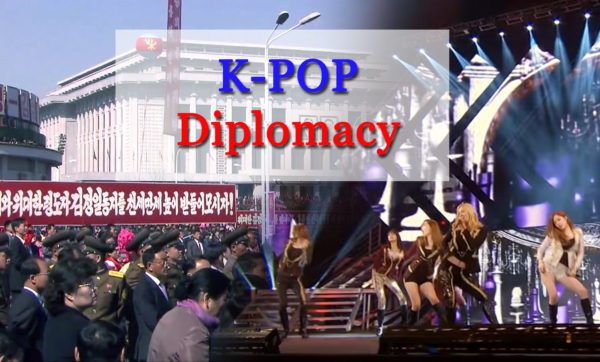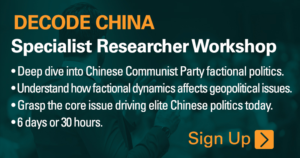◎ The K-pop performances are another sign of coming peace on the Korean Peninsula
Over 150 South Korean artists will perform in Pyongyang from March 31 to April 3, the South Korean government confirmed on March 27.
The artists, including K-pop groups like Red Velvet and veteran singers like Cho Yong Pil, will perform at the East Pyongyang Grand Theatre on April 1 and hold a joint South-North concert on April 3 at the Ryugyong Chung Ju Yung Gymnasium. Both venues can accommodate about 12,000 people, and the performances will each be about two hours long. North Korean state television would provide broadcast equipment.
Cho Yong-Pil was the last South Korean artist to perform in North Korea in 2005.
The backdrop:
South Korea’s cultural diplomacy comes on the back of Kim Jong Un meeting with Xi Jinping in Beijing, and before North-South Korean talks on April 27 and Kim’s summit with President Donald Trump in May.
Our take:
1. The K-pop performances are another sign of coming peace on the Korean Peninsula. Other signs include:
- Kim Jong Un pledged to denuclearize the Korean Peninsula and appeared deferential to Xi Jinping during their summit from March 25 to March 28.
- After the Xi-Kim summit, President Trump tweeted on March 28 that despite past administrations and people saying that there “was not even a small possibility” of “peace and the denuclearization of the Korean Peninsula,” now “there is a good chance that Kim Jong Un will do what is right for his people and for humanity.” Trump added that “maximum pressure” towards North Korea will be maintained in the meantime “at all cost.”
- Sen. Lindsey Graham told Fox News on March 28 to expect some “historic moments” with regard to North Korea and Iran in May. Earlier that day, Graham had a 90-minute meeting with Trump.
- China’s defense ministry announced on March 29 that it is coordinating a possible visit by U.S. Defense Secretary Jim Mattis to China.
2. North Korea has been duplicitous about its efforts to denuclearize in the past, but we believe that Kim could genuinely give up his nuclear program this time because his rule is imperiled under today’s markedly different political climate:
- Months of stringent sanctions against North Korea are likely taking a toll on the population.
- Trump is serious about ending the North Korean threat, and will want to do so when he is in office. In other words, Kim knows that sanctions won’t be lifted and military invasion looms if he keeps up with his nuclear program.
- Trump’s tariffs on Chinese imports and a Sino-U.S. trade war gives Xi Jinping incentive to rein in Kim in exchange for a lessening of tariffs.
- Xi consolidated power more fully at the 19th Party Congress, and the Jiang Zemin faction whom Kim is close to is increasingly marginalized. And at the Two Sessions, Xi signaled that he wouldn’t become a lame duck leader when the Chinese legislature voted to scrap presidential term limits. Kim would have read the tea leaves and decided that it was better to fall in line with Xi or else.
- Kim would have noticed that Xi and Trump have a very good rapport, and guessed that Xi would likely abandon North Korea should Trump use the military option. Given the shared ideology between the PRC and the DPRK, Kim would have reasoned that acceding to Xi and seeking the PRC’s help in denuclearization is the only viable option to preserving his rule.
3. Going by the PRC experience, the K-pop performances could be the step that ushers in reform and opening in North Korea.
- North Koreans can and have been severely punished for consuming “decadent” South Korean pop culture. In 2013, mainland Chinese media reported that 80 people were shot after they were caught watching Korean dramas.
- Similarly, the Chinese Communist Party (CCP) deemed it a criminal offense to listen to music by the immensely popular Taiwanese singer Teresa Teng during the Cultural Revolution. However, restrictions were slowly and quietly lifted during the 1980s reform and opening period. CCP elites were allowed to listen to Teng’s “yellow music,” and the common folk was not punished if they were caught listening to her ballads on the radio. Eventually, Hong Kong movies were also aired on the mainland.
- It is unclear if regular North Koreans would be allowed to attend the South Korean performances in Pyongyang. But even if the concerts are elite-only, expect gradual dissemination of K-pop to the masses.
4. Should Kim Jong Un carry out his version of “reform and opening,” it will be solely to preserve his leadership. This is characteristic of communist dictatorships.
- Mikhail Gorbachev introduced perestroika and glasnost in response to President Ronald Reagan’s successful economic war against the Soviet Union. The Soviet Union was also suffering from a disastrous war in Afghanistan.
- Deng Xiaoping carried out “reform and opening” to improve economic conditions in China and preserve the CCP’s legitimacy after Mao Zedong’s disastrous Cultural Revolution. In 1992, Deng embarked on his “Southern Tour” to force the Jiang Zemin leadership to undertake further economic reform and bring prosperity to the people in the hopes that they forget the 1989 Tiananmen Square massacre.
- Kim could follow the playbook of earlier communist leaders if he believes that bringing prosperity to North Korea is the best way to maintain the Kim dynasty after the Korean Peninsula is denuclearized.
5. Understanding elite CCP politics is a must to get a better sense of the North Korean situation.













